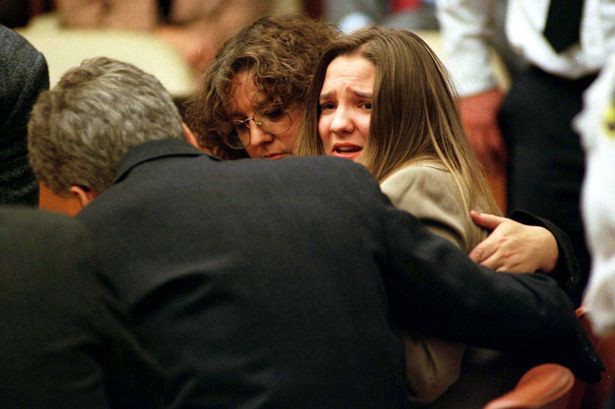Meryl Goldsmith is a Los Angeles-based filmmaker who got her bachelor’s degree in Film and Video from the University of Michigan. Goldsmith teamed up with an investigative journalist on her feature directorial debut, “The Syndrome.” The award-winning documentary has played at fourteen film festivals and several law and forensic science conferences. (Press materials)
“The Syndrome” premieres theatrically and on VOD on April 15.
W&H: Describe the film for us in your own words.
MG: It’s a story about a group of renowned doctors willing to risk their careers to stand up for science, justice and families and what happens when they do. We identify three key promoters of the diagnosis who built careers off promoting Shaken Baby Syndrome, and you see and hear them throughout the film. It’s both hard-hitting and heartfelt, mixing archival and present day, including shocking secret tapings.
W&H: What drew you to this story?
MG: My cousin Susan Goldsmith and her incredible story instincts, credentials and experience. This was one of the best stories that one of the best reporters in the country had found — no one has told it, and it desperately needs to be told. It’s a criminal justice crisis: There are an estimated 1,000 innocent people in prison. It is an opportunity for us to potentially help a lot of people.
W&H: What do you want people to think about when they are leaving the theater?
MG: The innocent people in prison, the families torn apart, that this could happen to you or someone you love and that this is a criminal justice crisis that we as a country need to fix. [I also want them to think about] the inspirational doctors standing up for the innocent people. That we all need to stop going fuzzy in the head when we hear the words “child abuse” and we should look at the science. That they want to tell people to see the film.
W&H: What was the biggest challenge in making the film?
MG: Editing. Even with everything being structured beforehand, there was just so much footage. And finding all of the footage we needed. We received a secret taping of one of the Shaken Baby Syndrome conferences so it was worth the wait! Also it was an enormous hurdle to find a family facing charges and willing to be filmed while going through it.
W&H: How did you get your film funded? Share some insights into how you got the film made.
MG: Self and family-funded.
W&H: What’s the best and worst advice you’ve received?
MG: The best: to listen to your gut, to not let someone else try to tell your story. To “grab them by the throat” and don’t let go. Also these two words: entertainment business. The worst advice: that anything can be made into a story, to find a story during filmmaking, to slowly build scenes.
W&H: What advice do you have for other female directors?
MG: Be bold. Take whatever it is that makes you unique and amplify it. Have extremely high standards for your work. Constantly ask yourself when making and watching, is this awesome, entertaining, brilliant, fascinating, gorgeous? Make a goal to create something that makes people say “WOW!” Keep pushing yourself to goals and standards that would make someone realistic say “you’re delusional.”
W&H: Name your favorite woman-directed film and why.
Jennifer Kent’s “The Babadook.” It was scary, fun yet still meaningful and heartfelt. I loved all of the elements in that film from acting to sound design and special effects. It felt like it was handled in a gentle, beautiful way while still giving you the hard chills and scares.







